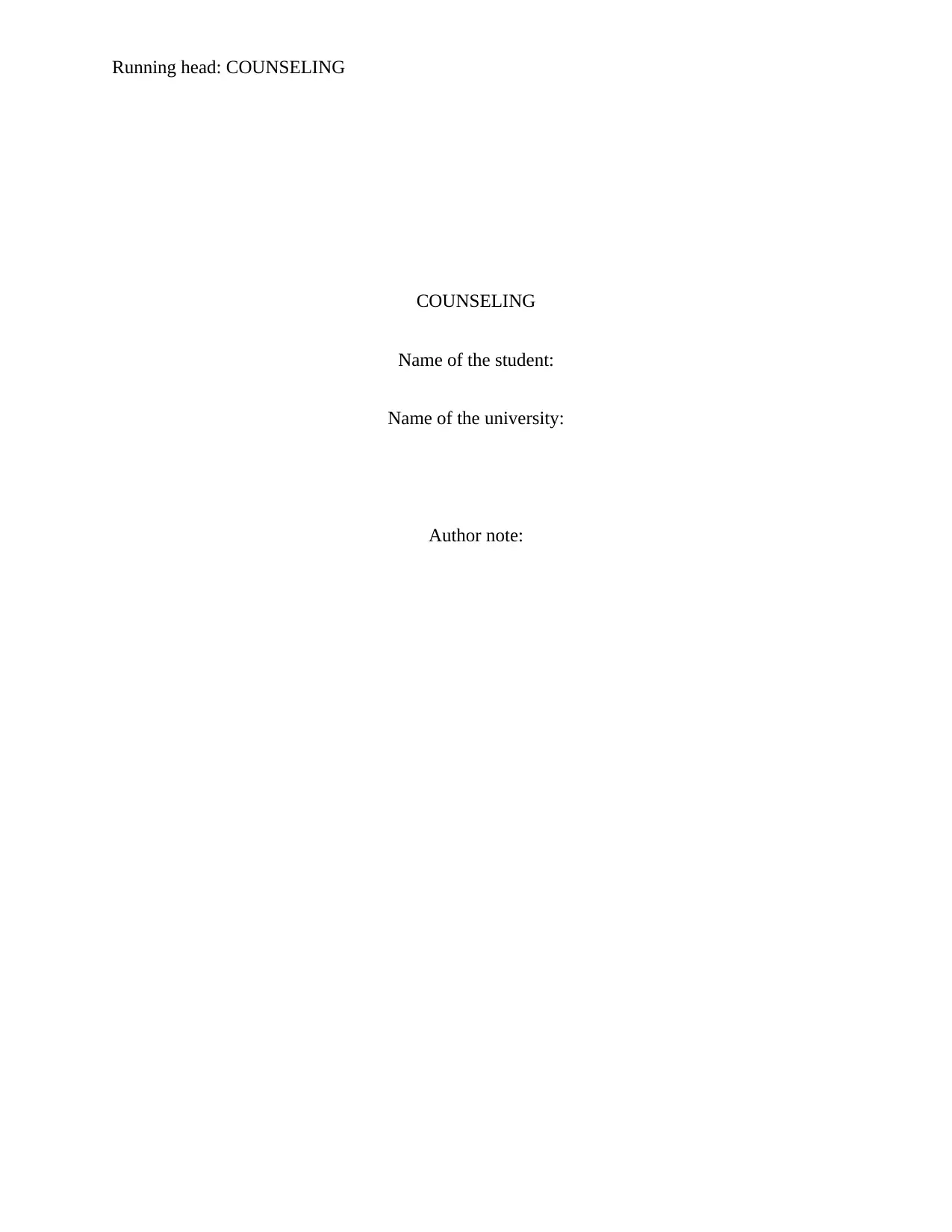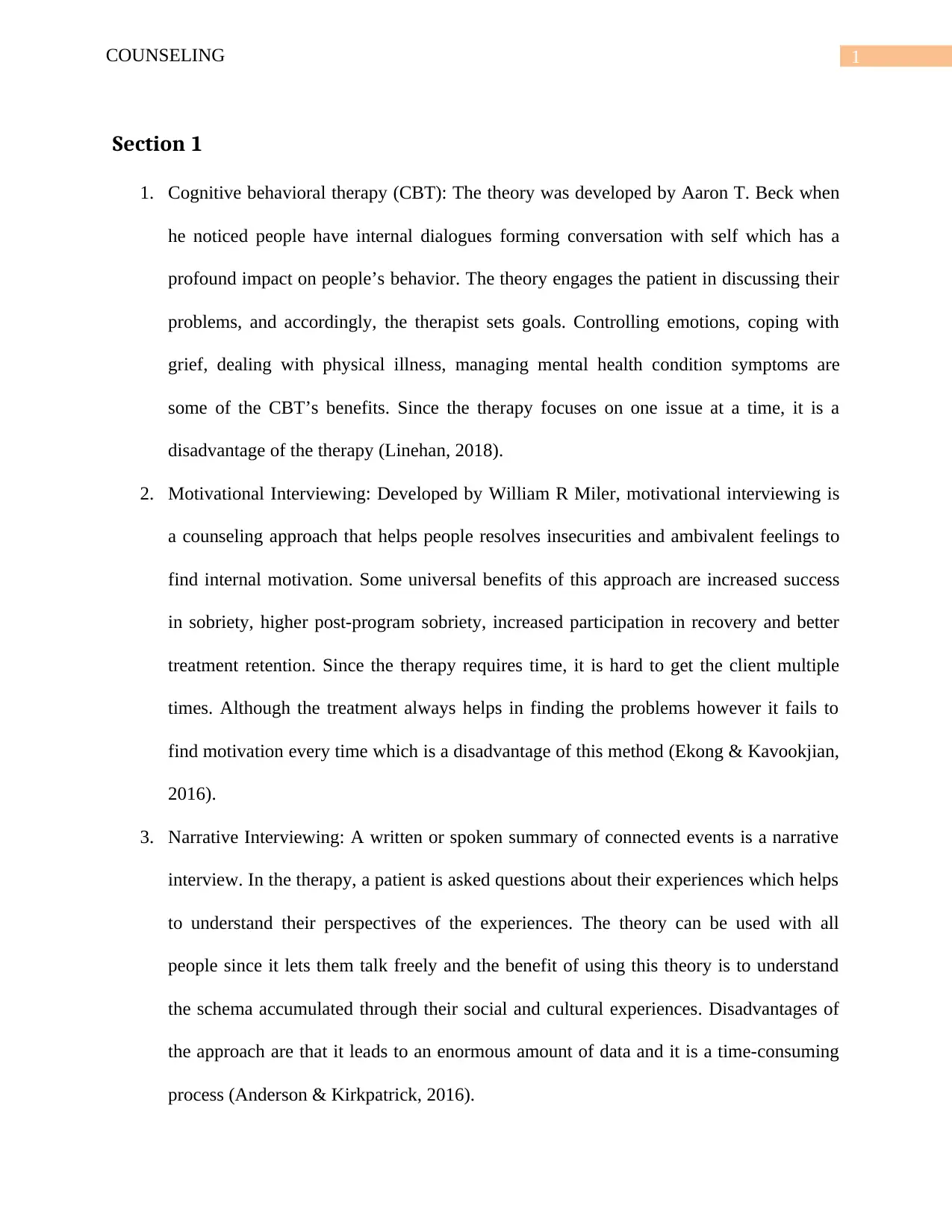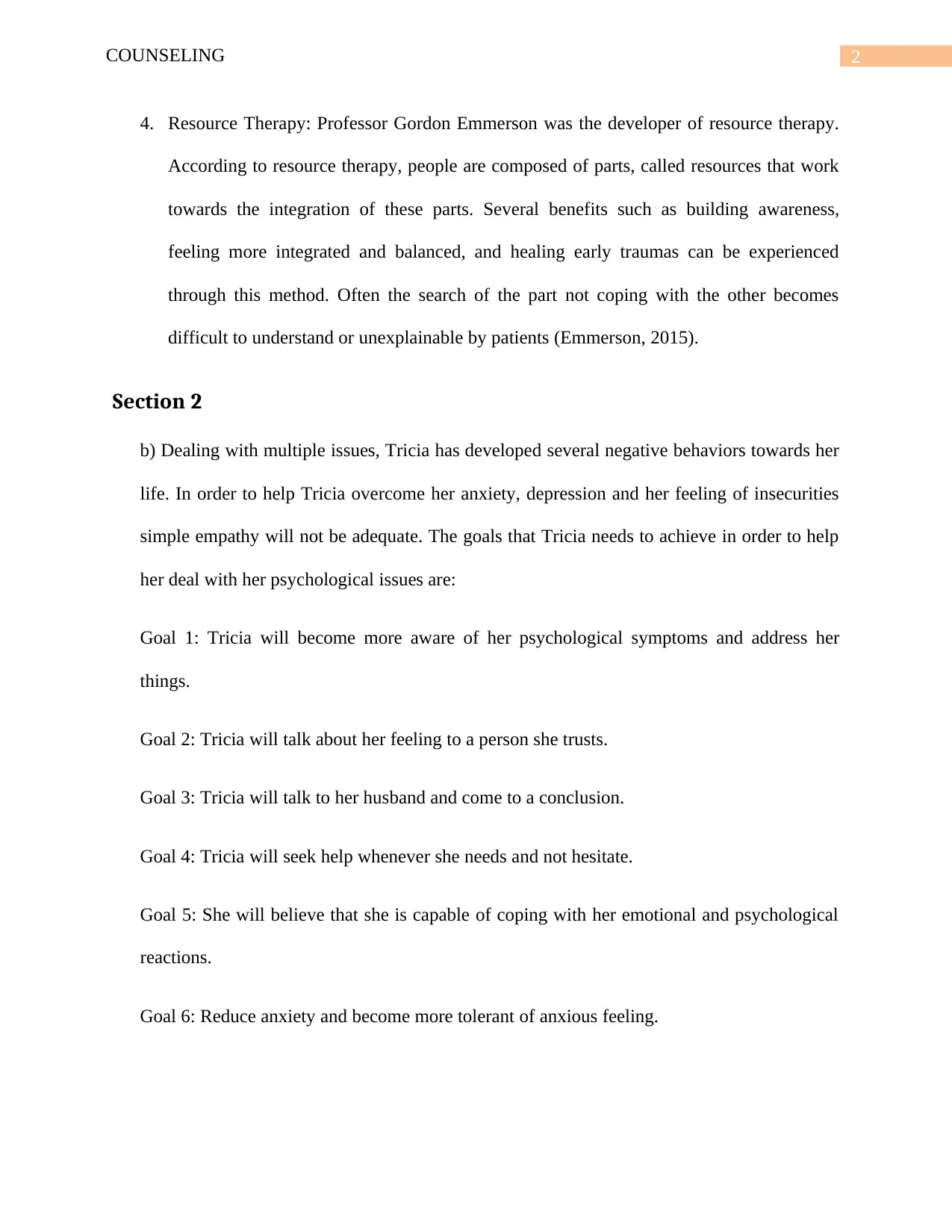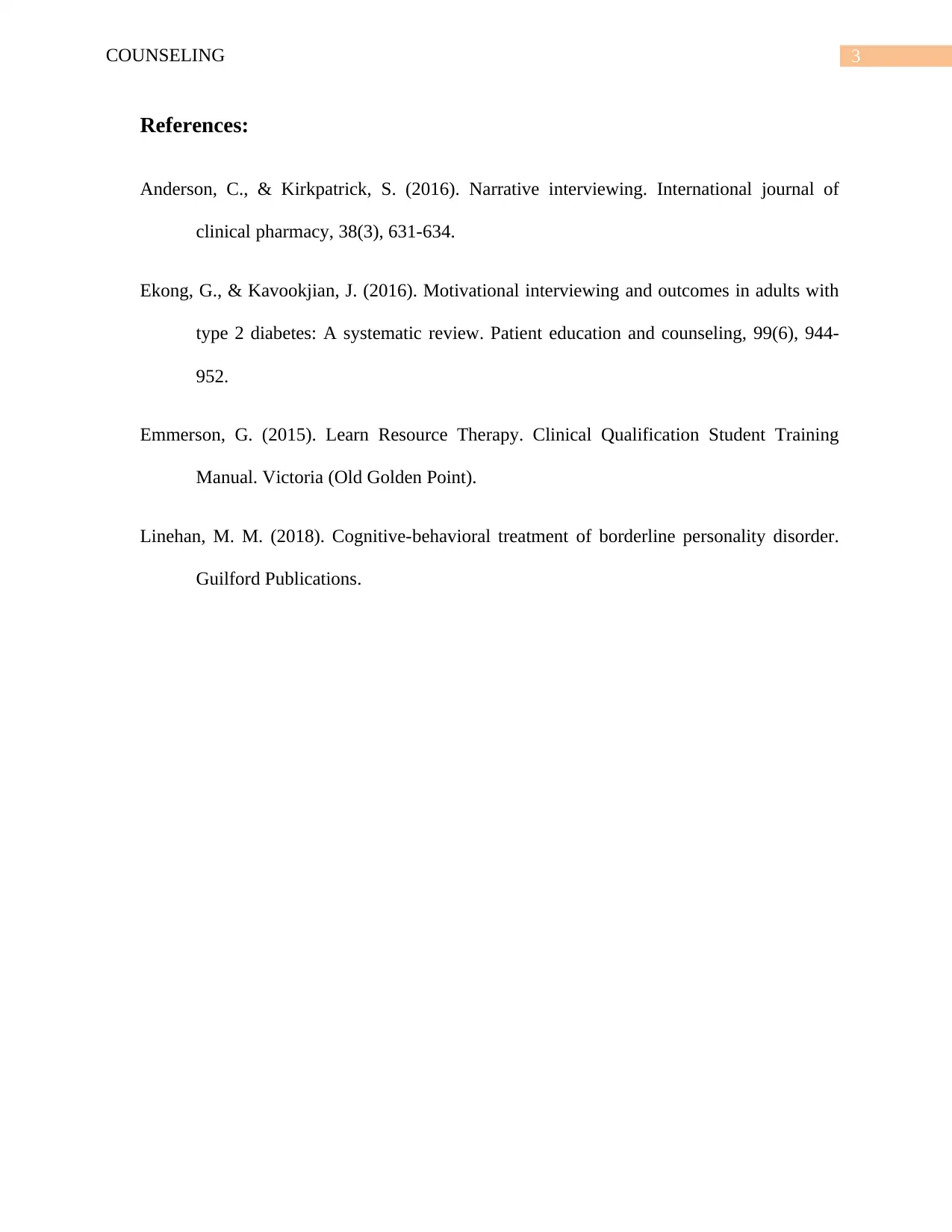CHCCSL006: Examining Counseling Therapies & a Practical Case Study
VerifiedAdded on 2023/04/20
|4
|689
|397
Homework Assignment
AI Summary
This assignment provides an overview of four counseling therapies: Cognitive Behavioral Therapy (CBT), Motivational Interviewing, Narrative Interviewing, and Resource Therapy. For each therapy, the assignment discusses its historical development, underpinning concepts and principles, benefits, and limitations. The second section presents a case study of Tricia, a 30-year-old woman experiencing multiple issues. It outlines goals for Tricia to address her anxiety, depression, and insecurities. The assignment showcases an application of therapeutic principles to a specific case. Desklib offers a platform for students to access this and other solved assignments for academic assistance.
1 out of 4











![[object Object]](/_next/static/media/star-bottom.7253800d.svg)